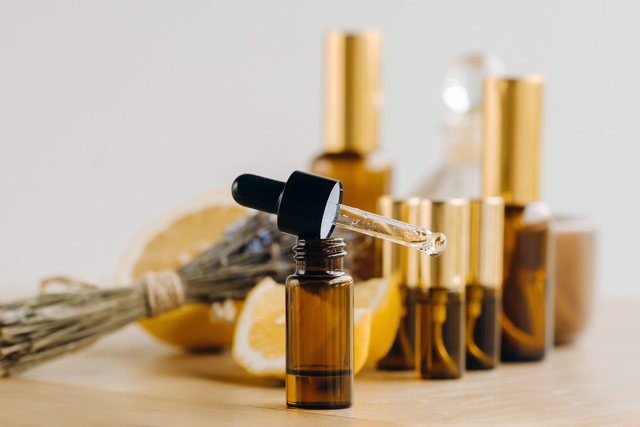In today’s fast-paced world, many people are turning to natural remedies to support their health and well-being. Essential oil, derived from plants, have gained immense popularity for their therapeutic properties and versatile uses. These potent oils are not only known for their aromatic qualities but also for their numerous health benefits. In this comprehensive guide, we will explore the world of essential oils, their origins, benefits, usage, and safety tips.
Origins of Essential Oils
Essential oil have been used for centuries in various cultures for their medicinal and aromatic properties. The process of extracting essential oil involves distilling or cold-pressing plant materials such as flowers, leaves, bark, roots, and peels. This method preserves the natural compounds of the plants, resulting in highly concentrated oils with distinct fragrances and therapeutic effects.
Historically, essential oil have been used in traditional medicine, aromatherapy, skincare, and even spiritual practices. Different cultures around the world have recognized the healing powers of essential oil, and their popularity continues to grow in modern times.
Benefits of Essential Oils
Essential oils offer a wide range of benefits for physical, emotional, and mental well-being. Here are some of the key benefits of using essential oils:
- Stress Relief: Many essential oils have calming and relaxing properties that can help reduce stress and anxiety levels. Oils such as lavender, chamomile, and bergamot are popular choices for promoting relaxation.
- Improved Sleep: Certain essential oils, like lavender and cedarwood, are known for their sleep-inducing effects. Diffusing these oils in the bedroom can create a peaceful environment conducive to restful sleep.
- Pain Management: Essential oils like peppermint and eucalyptus have analgesic properties that can help alleviate headaches, muscle aches, and joint pain when applied topically or used in massage.
- Immune Support: Some essential oil, such as tea tree and eucalyptus, have antimicrobial properties that can help boost the immune system and protect against common infections.
- Skin Care: Many essential oil are beneficial for the skin, with properties that can help soothe irritation, reduce acne, and promote a healthy complexion. Oils like tea tree, rosehip, and frankincense are popular choices for skincare.
- Mood Enhancement: Aromatherapy using essential oil can have a positive impact on mood and emotions. Oils like citrus scents, such as lemon and orange, are uplifting and energizing, while floral scents like rose and jasmine can promote feelings of happiness and well-being.
Usage of Essential Oils
There are several ways to use essential oil to enjoy their benefits. Here are some common methods of using essential oils:
- Aromatherapy Diffusion: One of the most popular ways to use essential oil is through aromatherapy diffusion. Adding a few drops of oil to a diffuser with water can fill the room with a pleasant fragrance and therapeutic properties.
- Topical Application: Essential oils can be diluted in a carrier oil, such as coconut or jojoba oil, and applied to the skin for targeted benefits. It’s important to perform a patch test before applying essential oils to the skin to avoid any adverse reactions.
- Inhalation: Inhaling essential oil directly from the bottle or by adding a few drops to a bowl of hot water can provide quick relief for respiratory issues or help improve focus and concentration.
- Internal Use: While some essential oil are safe for internal consumption, it’s essential to consult a qualified aromatherapist or healthcare provider before ingesting any oils. Not all essential oils are safe for internal use, and proper guidance is crucial.
Safety Tips for Using Essential Oils
While essential oils offer numerous benefits, they are potent substances that should be used with care. Here are some safety tips to keep in mind when using essential oils:
- Dilution: Always dilute essential oils with a carrier oil before applying them to the skin to prevent irritation or sensitization. The standard dilution ratio is 2-3 drops of essential oil per teaspoon of carrier oil for adults.
- Patch Test: Perform a patch test on a small area of skin to check for any allergic reactions before using the oil more extensively. Wait 24 hours to ensure there is no adverse response.
- Avoid Contact with Eyes and Mucous Membranes: Essential oils should not come into direct contact with the eyes, ears, or other sensitive areas. If accidental contact occurs, rinse with a carrier oil, not water.
- Storage: Store essential oils in dark, glass bottles away from direct sunlight and heat to preserve their potency and prevent degradation. Keep them out of reach of children and pets.
- Pregnancy and Medical Conditions: Pregnant or nursing women, children, and individuals with specific medical conditions should consult a healthcare provider before using essential oils to ensure safety and appropriateness.
Conclusion
Essential oils have become a staple in many households for their natural healing properties and aromatic qualities. From promoting relaxation and stress relief to supporting overall well-being, these plant-derived oils offer a myriad of benefits for mind, body, and spirit. By understanding their origins, benefits, usage methods, and safety precautions, individuals can harness the power of essential oils to enhance their health and quality of life. Embrace the world of essential oils and experience the transformative effects of nature’s pure essence.











